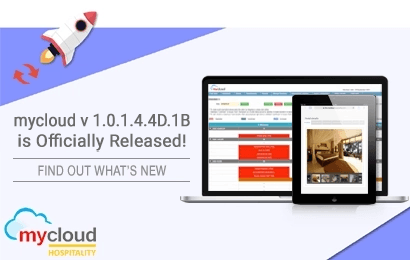Hotel revenue management is crucial for the success of any establishment, despite its size. While such an establishment can’t do much about its surrounding and local climate, its rooms and customer experience are something that can be managed. This is exactly what hotel revenue management is all about and with hotel software, it has become much easier to do it.
One of the widely accepted definitions on Hotel Revenue Management clearly states that it is: selling the right room to the right client at the right moment at the right price on the right distribution channel with the best commission efficiency.
Since this definition is a quick sum up of revenue management, here are the concepts that will help you understand and take care of its basics in your own establishment.
Basic Principle 1: Value
When managing hotel revenue, one must understand that it all revolves around value. Here, we are not only talking about the value you advertise to potential visitors but also the perceived value which can be gathered through feedbacks and surveys.
Advertised value and perceived value discrepancy should be kept to a minimum at all times so that the guests don’t get disappointed. Furthermore, since most guests seek hotels online, minimal to no discrepancy in these two values will help you to get good reviews online and attract more guests. To increase this value, managers can make improvements to customer service, improve food and drink quality and packages, secure private parking, etc.
Basic Principle 2: Distribution Channel
A distribution channel is none other than a marketing channel. Marketing budgets of independent hotels are very limiting when it comes to devoting resources to marketing. This is why a manager has to pick the perfect marketing channel.
In order to determine the best one for your hotel, you can check how your main competitors in the area are doing it. Before choosing the marketing channel, you have to see how it’s going to be managed and what is the estimated cost of such efforts. There are many hotels which utilize several different channels which offer different marketing opportunities.
Before making a choice, make sure to check if you have people in-house who have the skills and access to technologies to do any of this.
Basic Principle 3: Direct Booking
As you already know, guests can book hotel rooms by contacting any of your external partners. The downside of this is allowing your guests to become loyal to your partner instead of you. In order to address this issue, you have to develop a direct booking strategy that will provide an additional level of service to guest who books directly with you.
There are many hotels that have already recognized the opportunity to increase their visitor’s loyalty through direct booking initiatives. These hotels reward their guests who have booked directly by giving them discounts on future visits, food, and drinks, lower reservation prices, etc.
The main goal of this strategy is to attract visitors to go directly to your official website or social media profiles instead of booking websites where they can see and book other hotels in the area. Loyalty programs are an excellent method to prevent this kind of behavior.
Basic Principle 4: Hotel Software, Data, and Insights
Hotel revenue managers should always make their decisions based on the most recent and accurate data. This is why hotels should keep only important data in their records. Piling up useless data can only cause hotel management to get lost in it while losing the chances to identify important trends.
Relevant data is the key to the success of any hotel. For instance, a majority of successful hotels are keeping tabs on customer behaviour. Since it makes this process seamlessly easy, a hotel management software system has become one of the favorite tools of hotel managers. Keeping tabs on marketing efforts and identifying the marketing channel which brings the most and least guests to your doors will help you to adjust your efforts.
The data coming in the form of customer feedback is also important. It will help you identify pain points and make the necessary improvements. So, make sure to keep your eyes peeled for comments on social media and forums popularly used by tourists.
Basic Principle 5: Experience Starts with your Website
Website management falls into the category of hotel revenue management. The fact is that the visitorâ??s experience starts with the experience your official website has to offer. Try to put yourself in the shoes of visitors. Your website has to help them find out almost everything they need. Making the website mobile friendly is also a must since more and more people are accessing the web via their smartphones.
In order to improve the standings of your online presence, you can start a blogging section on your website and share the new content on your social media profiles. By targeting specific keywords, you can easily pop up in the search inquiries from people looking for a place to stay when traveling.
Basic Principle 6: Demand Forecasting
Demand forecasting is one of the most important things in hotel revenue management. In order to not exceed the budget limits, a manager has to know the projected revenues, needs, and costs. By mapping the origin of your demand, you can identify the booking trends and forward that information to the marketing department to custom tailor the future initiative.
Accurate mapping will give you metrics such as average customer spending per their location, gender, and age, the origin of booking and type of reservation, average customer stay per chosen category, etc. All of these metrics are very important and using them to shape future initiatives will increase your hotelâ??s revenue.
Conclusion: –
These were the 6 basic principles of hotel revenue management. Devoting your time to understanding these will help you see the big picture behind hotel management. Also, by installing and using the hotel management software system, you will be able to automate repetitive tasks and have more time for core revenue management operations. Before addressing any of these, make sure to review your current operations in order to identify spots which require immediate attention.










